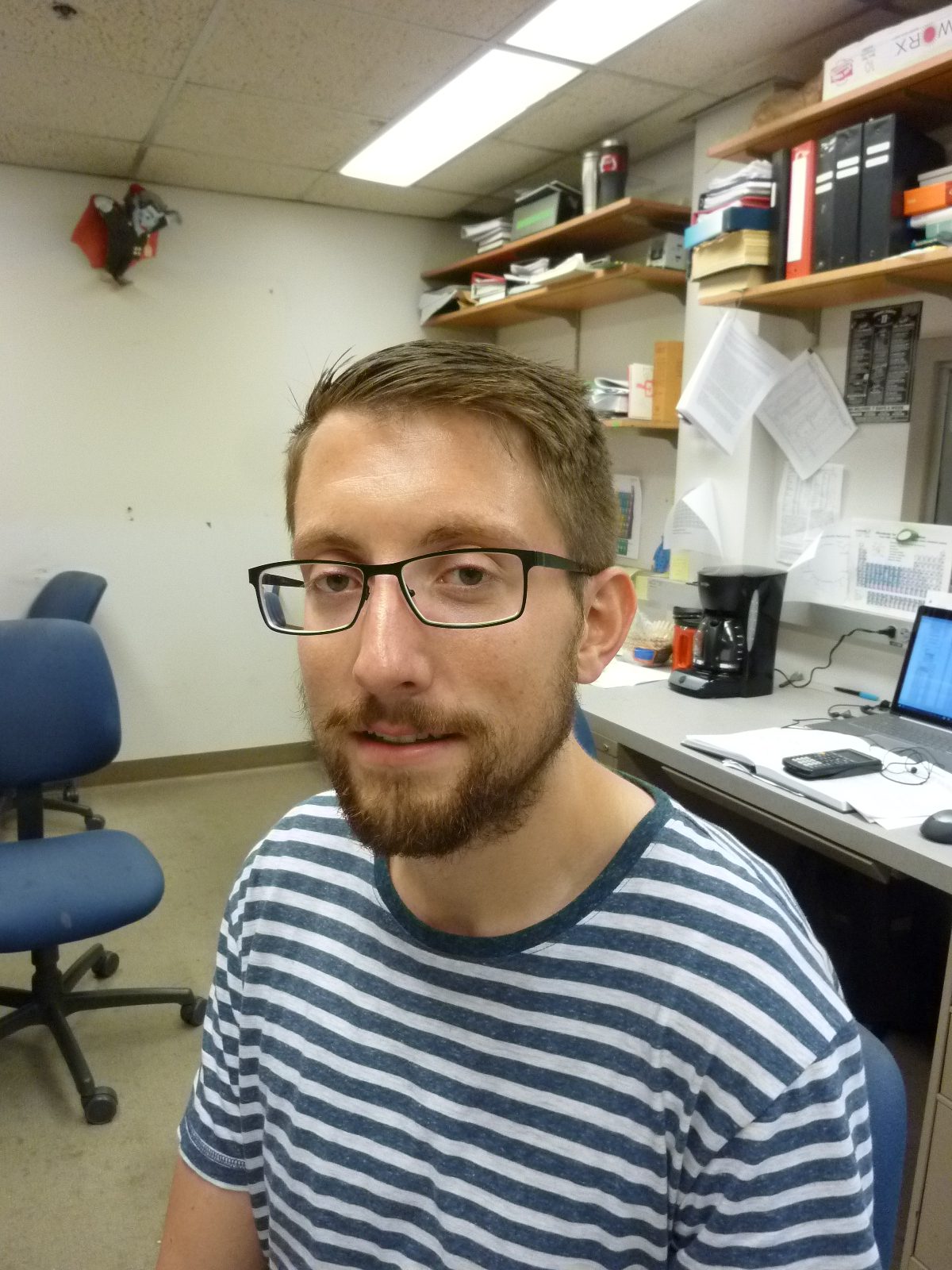Biography
I am a visiting scholar from Germany, staying here in Bloomington from July till end of October. I was born in Frankfurt (Germany) and studied chemistry at the Georg-August-University in Göttingen. I obtained my M.Sc. in the group of Prof. Sven Schneider, working on the reactivity of Co-PNP-pincer-complexes. I subsequently started to pursue my PhD as a graduate student in the Schneider group.
My graduate research focuses on N2-splitting and functionalization utilizing functional pincer ligands. In this project I want to transform N2, which is a very unreactive molecule, into other N-containing molecules like ammonia or other organic molecules.
Research Projects
Nitrogen is beside carbon, oxygen and hydrogen one of the main elements found in organic molecules. Even though nitrogen makes with 80% the major part of our atmosphere most of these organic molecules are not made directly from N2 but from its reduced form, ammonia, which is also essential for agricultural industry since most fertilizers contain at least one nitrogen atom. On industrial scale this transformation of N2 into NH3 is done via the so-called Haber-Bosch-process in gigantic scales with over 100 million tons per year, which also shows its high importance.
Since the reaction conditions of this process are very harsh (150-350 bar at 400 – 500 °C) there are enormous efforts in designing biomimetic catalysts for this reaction. Many recent studies of such homogeneous systems have shown that metal-nitrides seem to be a key intermediate in the catalytic cycle. Since the mechanism of N2-splitting is nearly completely unknown, there’s a high interest in synthesizing complexes which form bonds with N2 and then look on the conditions that are needed to initiate N2-splitting. In this way the mechanism of N2-splitting as well as the requirements regarding the supporting ligand can be investigated, which helps designing more effective catalysts for the transformation of N2 into NH3.

Within a close collaboration the Schneider (U Göttingen, Germany) and Caulton groups study N2-splitting mediated by dinuclear-PNP-complexes, as recently reported for [{(PNP)ClMo}2{µ-N2}] (1)[1]. Splitting of the N2-bond in such complexes leads to the formation of metal-nitrides, which can be either used as a catalyst for ammonia formation or to form new C-N-bonds. In an ideal case such C-N-coupling reactions would open up the possibility to generate N-containing organic molecules directly from N2 without the use of ammonia, which would make their synthesis much more efficient and economic.
[1] G. Silantyev, M. Förster, B. Schluschaß, J. Abbenseth, C. Würtele, C. Volkmann, M.C. Holthausen, S. Schneider Angew. Chem. Int. Ed. 2017, 56, 5872-5876.

